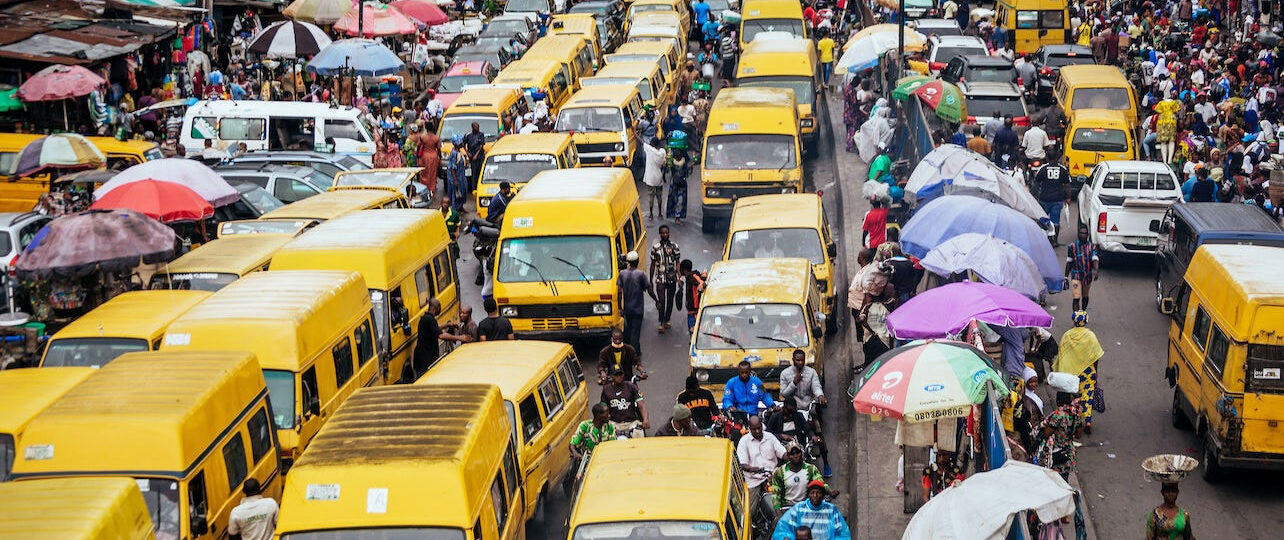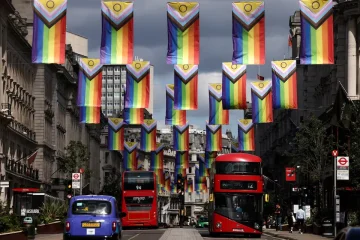PEOPLE with disabilities often face difficulties when accessing transport services. Inadequate and unsuitable options restrict their mobility, independence and ability to navigate their communities. This limits their opportunities for employment, education, healthcare and social engagement. These individuals can also be very vocal about their experiences – sharing comments online that can shape the branding and marketing of a city.

As an academic researcher with a focus on transport, education and financial services, I teach the marketing and advertising of these services. To do so, one must first understand the state of a service like transport in a city.
I’ve studied the experiences of commuters with disabilities and examined their interactions with transport providers. My focus has been on developing countries, like Nigeria, where limited transport infrastructure poses unique challenges for disabled commuters.
In my latest research, I explored interactions between commuters with disabilities and transport services providers in the densely populated Lagos state.
Commuters with disabilities express constant dissatisfaction with the poor service quality provided by danfo (minibus) operators in Lagos. And about the negative attitudes of other commuters, who often perceive them as burdens who slow down the journey.
It’s crucial to address these barriers by establishing inclusive and accessible transport systems that meet the diverse needs of individuals with disabilities. This will promote equal opportunities and full participation for all members of society. Apart from enhancing their wellbeing and quality of life, this could also improve the image of Lagos.
The study
Danfos – small yellow para-transit buses often derived from retrofitted Volkswagen vans – are the most popular form of public transport in Lagos. They accommodate 14 to 18 commuters and can be very uncomfortable when passengers are packed together. Danfos are unregulated, with no designated routes or route numbers. They’re operated by informal, self-employed owners or drivers.
Qualitative data for my research was collected over five weeks of ethnographic fieldwork in different locations in Lagos state. This included interviews with 23 individuals with various forms of disabilities and 81 transport service providers.
My analysis presents three key themes around the experiences of commuters with disabilities.
Before riding
Participants expressed concerns about the disorganised nature of transport services in Lagos. They felt anxious and uncertain because there were no fixed schedules and bus availability was unreliable. They requested a journey planner and mobile app.
But danfo drivers showed little interest. They didn’t believe they needed technology to aid their informal business because even without it, they were exceeding their targets.
One driver said:
You are making everything these days about technology. I am not ready for that, I just want to get on with my work.
Accessing buses was especially challenging for wheelchair users, who face uncooperative drivers. Drivers said that meeting targets and avoiding delays were obstacles to providing better service.
The fast-paced environment and inadequate infrastructure exacerbated difficulties for commuters with disabilities – drivers and conductors displayed a lack of understanding and patience. I found a general lack of awareness and empathy towards the needs of disabled commuters.
While riding
Participants shared experiences about bus conditions, safety and desired assistive technologies during their journeys. Service providers showed a resistance to change.
Space issues, especially for wheelchair users, were raised. Bus rapid transit services in Lagos were seen as more supportive, but participants mainly used unregulated private buses. Formal buses operate on a specific route, while danfos operate on their regular route. They end up heavily relying on them for their daily commute.
One participant with a hearing impairment told me:
The bus conductors and drivers can be very rude. They lack empathy and any human feeling. They can shout at you, pull you down if you are struggling to get down or they will treat you like you are nobody. This is because they know you don’t have a choice.
Participants called for training and compassion. Two wheelchair users said that drivers charged them more because they had a wheelchair. The drivers I interviewed denied the claims.
Disembarking
Commuters with disabilities expressed concerns about the lack of assistive technologies and the service providers’ limited awareness. Accessibility issues arose, like struggles to attract the attention of bus conductors and the rush to exit as conductors called in more passengers.
One visually impaired participant said:
I now have to follow the bus to one of the bigger stops where I know they will stop to take some passengers. I do this because they don’t like stopping at my bus stop – always grumbling that I am making them lose customers.
Many commuters shared stories of falling and injuring themselves, highlighting the safety hazards involved. Inadequate infrastructure, including poorly designed exits, steep ramps and inaccessible environments worsen these challenges. Regulated buses offered better support.
What needs to be done about it
The development of inclusive and accessible transport systems would enhance the mobility and quality of life for individuals with disabilities – and also the branding of the city.
One proposed solution is to launch a social campaign aimed at raising awareness about the challenges faced by commuters with disabilities. This would encourage operators to make small changes to enhance service quality. To reach operators, the campaign – which could be sponsored as a corporate social responsibility initiative – would involve visiting bus stops, engaging with drivers and sharing informative videos that promote empathy.
There’s also a clear need for a new mobility start-up that can disrupt the informal economy and provide a more inclusive service. This social enterprise could provide a service similar to London’s Dial-a-ride, where commuters with disabilities can pre-book buses. It could incorporate assistive technologies, mobile apps and journey planners.
By meeting the growing demand from people with disabilities who want to participate in the marketplace, more socially conscious public transport can open new opportunities.














